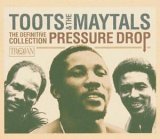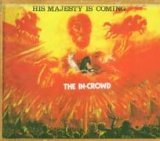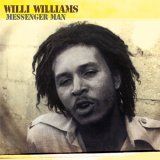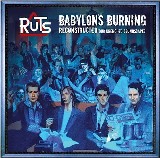Consider 1979. The glory time for
punk. The Clash, Sex Pistols and other notable bands were making such
an invigorating noise that North Americans had to pay attention once again
to what was happening to rocknroll in Britain.
One important thing that many Brit
rockers were doing was listening to reggae, loving it, and making it part
of their act. Kind of peculiar, really. Reggae in its primary mode was
considerably more relaxed than punk, more listenable, more thoughtful,
less frantic. Sure, it was as revolutionary as punk, but not as belligerent
(not yet).
So an interpretation of Junior
Murvins reggae classic Police and Thieves appeared on The Clashs first
album. Why? Because its about authority the rule of law colliding
with those to whom authority means oppression. Alongside Londons Burning
and a slew of other good original songs, it radiated the punk ethos. As
for the musical flow of the album, well, despite being Clashified the
reggae was a relief from all the clawing and hissing.
The EP bargain Black Market
Clash included a fistful of reggae covers. The Clashs version of
Pressure Drop is punk, hardly reggae at all obviously they didnt
want to compete directly with Toots and the Maytals original, a brilliant,
perfect record. On the other hand, their Armagideon Time and Justice
Tonight fully exploited the one-drop. I hadnt been familiar with those
two songs, and barely took note at the time that they were credited to
someone named W. Williams; they were simply great tunes on an under-rated
album. There was also the Mikey Dread production of Bankrobber/Robber
Dub, solid roots indeed.
That was a long time ago. Punk
and reggae were roommates. Both were in their prime, both thrived, both
resulted in a lot of music that remains vital. Part of the proof spins
on my CD player now, a quarter-century later, in the form of four recent
releases.
 From
From
Trojan Records comes Pressure Drop: The Definitive Collection,
a generous two-disc compilation of classic Toots and The Maytals. To my
ears, its Toots gritty gospel vocals in combination with the propulsive,
bubbling rhythms of Leslie Kongs production that will always embody Toots
at his prime. That means Sweet and Dandy, Bla Bla Bla, One Eyed Enos,
and others including, of course, the untouchable title track The Clash
dared not copy too closely. The groups even earlier ska roots are well
tapped too, with familiar titles like Its You and Never You Change
alongside such rarities as the loose and spirited Peggy and a percussive,
rumba-influenced version of Bam Bam. Key album cuts from the renowned
Funky Kingston are here too. Ill be listening to this stuff until
Im deaf from old age.
 Also
Also
from Trojan is His Majesty is Coming, essentially a very welcome
re-release from a lesser known group, The In-Crowd. Its another a two-CD
set, with the original album supplemented by dubs on the first disc, and
the second sampling other overlooked recordings. From the namby-pamby
band name you might expect pretty limp reggae, and sure, theres some
stuff no punk band would ever have covered. But the solid roots predominates:
deep bass, busy drumming, emphatic horn charts, vocal harmonies with a
frequent falsetto lead, wistful tunes and lyrics with a social conscience.
The song about slavery (I can still smell the stench of the stinking
hole we died in), complete with grunts and cracking whip, is maybe too
jaunty for its subject. Nonetheless, it and the next three (a punk-like
You Facey Whitey, a smooth and sophisticated tune inna Third World stylee,
and a catchy tour de force that juxtaposes dread prophecy with optimism
and upbeat chorus) bring the original album to a very strong finish. The
second disc is more than filler (a toast by Jah Stitch) but less than
vital (some low-level soul/funk).
 Speaking
Speaking
of overlooked and re-issued reggae, watch for an ear-opener of an album
by none other than Willi Williams, our Armagideon Time guy. His Messenger
Man is on the dub-loving Blood and Fire label, so of course each
of the tunes on the original release is versioned here thats over 71
minutes of solid, classic roots reggae. It turns out that Williams is
as talented a singer as song writer, his vocals varying from Burning Spear-style
chant to keening cry to matter-of-fact defiance to gentleness. Although
he borrows from The Bee Gees and reworks his own Armagideon Time, for
the most part its wonderful original material sparklingly presented,
thanks largely to the musical support of a host of reggae stalwarts.
 Now
Now
for the repackaged punk. A Ruts song called Londons Burning had to
be retitled because The Clash got theirs out first. The song itself was
a punk classic, though, and now its the subject of what Ill call a one-song,
one-vocal album, paralleling reggaes single rhythm albums. The aptly
named Babylons Burning Reconstructed, on the awkwardly named Collision
Cause of Chapter 3 label, asks the musical question, How much can you
do with a single punk vocal and the same pounding drums and belligerent
guitar riff? The answer arrives through 16 mixes by various folks who
use almost any colour and texture to further the cause of diversity amidst
uniformity: cello, synthesized swirls, thumping big bass, alarms, tinkling
piano, echo, industrial noise, handclapping, whatever. Moodiness, minimalism,
paranoia, momentum, exaltation, bubbly fun, abstract film-score spaciness,
experimentation, its all here. Some reggae rhythms are too. Lovers of
dub, take note. Fans of punk or of one-riddim reggae, take note too. They
may be Ruts, but they are worth being in.
I wont bother making a parallel
between the former reggae/punk linkage and the present reggae/hip-hop
one. But I will say that the cross-fertilization worked well 25 years
ago, for a while at least, and broadened musical horizons for the audiences.
The Clash did not always clash. Punk did not always sneer. Roots reggae
was not always introverted. We the listeners give thanks.





